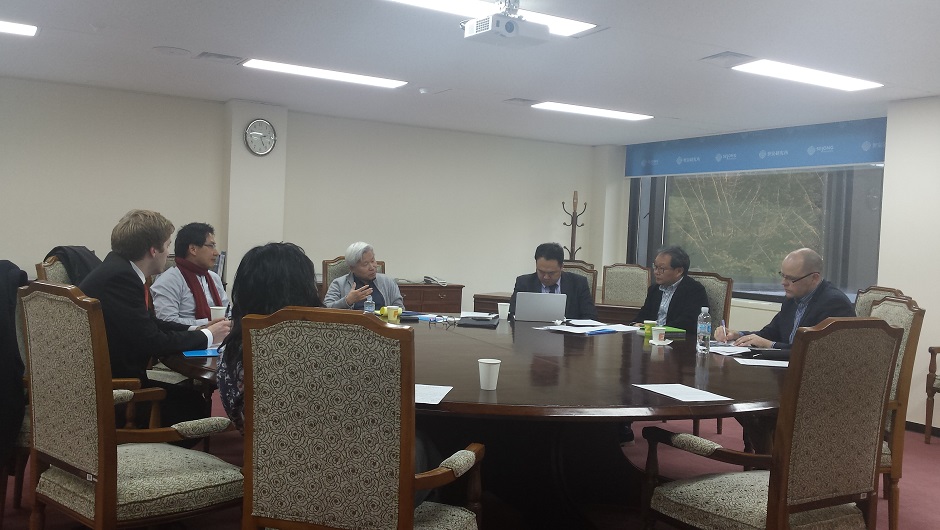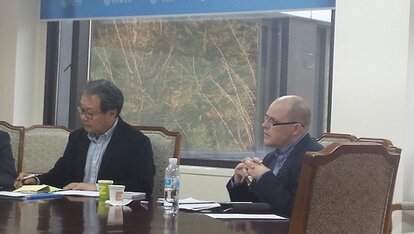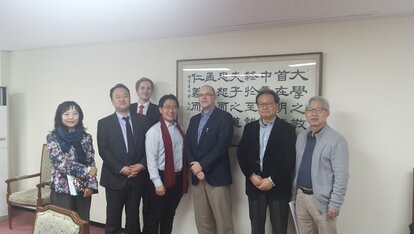Roundtable Discussion "Border Security & Commerce on the Tumen River"

On November 27th the Sejong Institute and Friedrich Naumann Foundation got together for a roundtable discussion in Seongnam about border security & commerce on the Tumen River. FNF Korea's guest from the University of Leeds, Adam Cathcart, was welcomed by Yang Un-Chul, vice president of the Sejong Institute, Lee Sang hyun, vice president for research planning, and research fellows Chung Eunsook, Chung JaeHung and Lee Seong-Hyon. Cathcart, expert on contemporary Chinese history and editor-in-chief of Sino-NK research website, laid the focus on the "crisis of April" in the Tumen area and China's behaviour during North Korea's missile tests.

Adam Cathcart shared his insights from his own research in China and from observing media outlets. During the so called "April crisis" which was rumoured to be the time of a conflict on the Korean peninsula China had some military activities behind their borders. It is unclear if they were actually mobilizing their troops to prepare for the conflict. However, American news outlets like CNN confidently reported Chinas changed policy towards the North. Chinese news media even spread misinformation by confirming border movements and military drills with the intention to threaten the North. He concluded that even if a lot is just speculation, there are several little indicators which might show China's behaviour has changed indeed, e.g. providing of medical treatment for some North Korean flood victims before sending them back or the anti-corruption campaign during which President Xi replaced border area officials with close ties to North Korea. He also suggested to keep an eye on the growing city of Hunchun as it might reveal more about the North Korea-China in the future.
Cathcart and the researchers of Sejong Institute shared their experience of being restricted from border areas as April 15th was followed by anti-spy public education measures. Suspected to be spies, foreigners were not permitted in those areas. Afterwards the participants vividly discussed topics as the possibility of intentionally spread misinformation, the visa situation of North Korean workers in China and the effect of sanctions on the North. China's stand towards the Kim regime and the military relations between both countries were of particular interest for both participating parties. It remains to be seen if some predictions of the participants will occur or not. Nevertheless, the roundtable discussion was very productive and successful and FNF Korea is looking forward to continue cooperation with the Sejong Institute.
